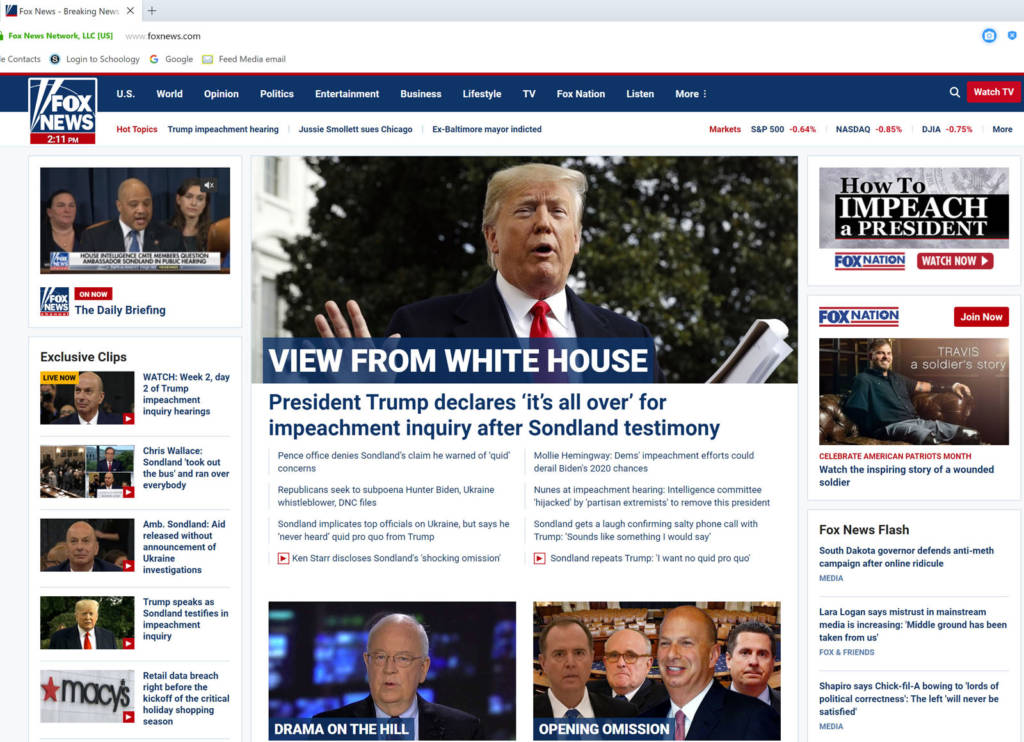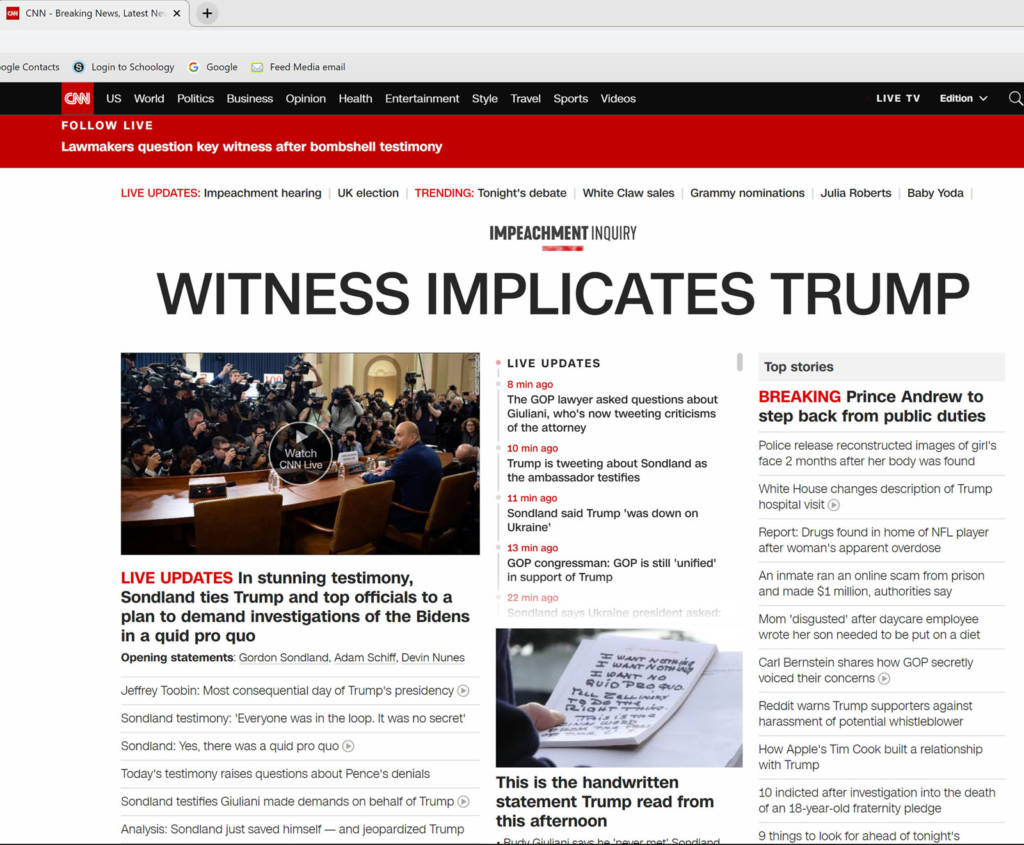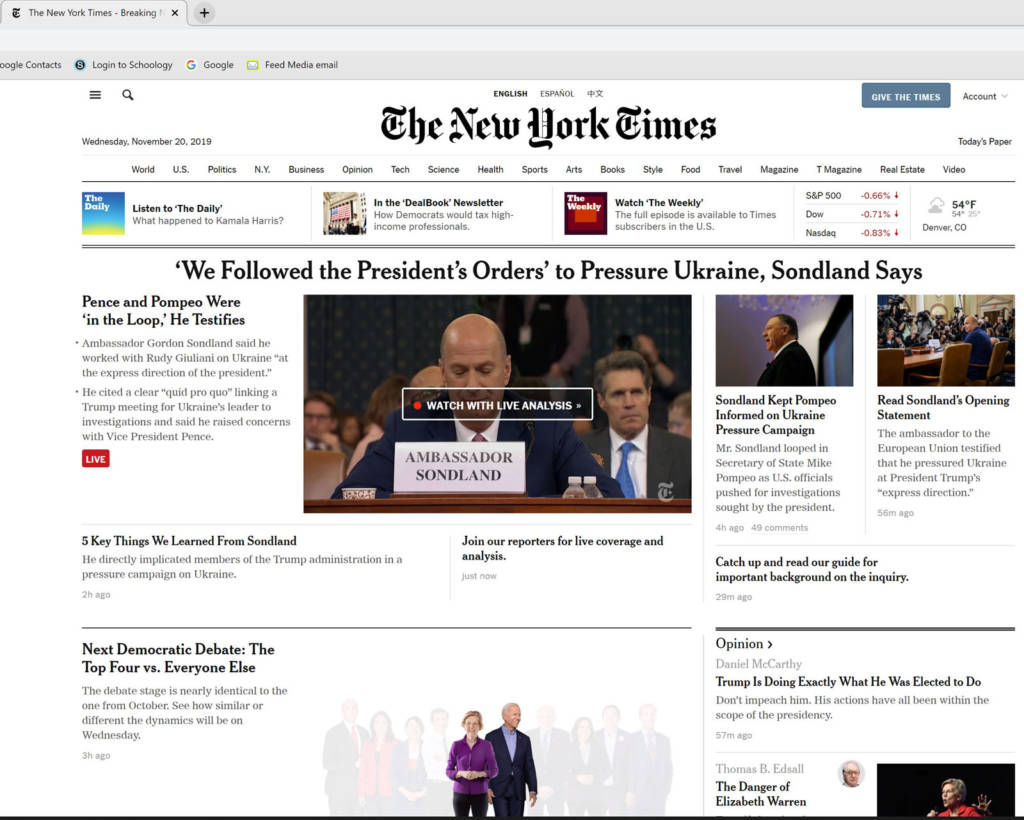What you think depends on what you read or watch. This applies broadly: a romance reader will see the world somewhat differently than a lover of thrillers, both by instinct and through the influence of what feeds their brains.
This becomes a problem, though, when information or entertainment influence the way people vote — and, by extension, how the country is led. The dysfunction of American democracy at the turn of the second decade of the 21st century can be attributed to many factors: crass partisanship, gerrymandering, and a thoroughly corrupt campaign-finance system are on or close to the podium. But the descent of Fox News into an oxymoron is, in my mind, the paramount culprit.
There are some fine journalists at Fox News, Chris Wallace being the foremost example (Shepard Smith was right there with him until he’d had enough). But this outlet has devolved (or maybe always was) into an entertainment house built on the rotten foundations of Drudge, Infowars, Breitbart, and other conspiracy-mongering clickbait factories.

Their prime targets are older people, many who happen to be white, many who happen to be men, who were brought up in a media environment in which the big-three networks reported what history has shown to be “the truth.” And so viewers raised on this diet grew to trust and believe whatever was coming across their screens. Generally, they settled on a particular channel because they liked the anchor. In my youth, this meant a preference for, say, Dan Rather over Peter Jennings or Tom Brokaw. But the information coming across the screens on CBS, ABC, or NBC didn’t differ substantially in terms of breaking news (one or the other might break the news, but the others would follow, but the stories were more or less the same). There was a reason for that: they were attempting to tell the truth, and the closer you hew to concrete reality (or, if we’re living in an amazing computer simulation, simulated reality), the less variation there will be in the reportage.
Fox News succeeded by exploiting the long-developed trust built among of those raised on Walter Cronkite and those who followed and kept them entranced with a steady diet of outrage and conspiracy theories. While occasionally there surely have been instances where everybody else got it wrong, it doesn’t happen enough to sustain 24/7/365 coverage. So they started manufacturing them on the opinion shows that constitute most of the Fox News menu. There have been books written on this.
As a reaction came the opinion shows of MSNBC and, to a lesser extent, CNN. The difference between these two left-leaning networks and Fox News is that their opinion shows spin off from objective truth (don’t tell me there’s no such thing as truth). The gulf in quality and experience of the regular guests on MSNBC and CNN’s opinion shows versus those on Fox News is a testament to this.

And so what we end up with is an alternate reality, which these screen shots show. I could have chosen any day, and I could have screen-grabbed NBC, CBS or ABC websites rather than these — or those of the BBC or Spiegel Online — all of which more or less jibe. They jibe because they attempt to interpret things that actually happened, otherwise known as “the truth.” Fox News is always an outlier because it doesn’t.
We have, then, a massively popular entertainment property that people implicity trust because of the historic reliability of news — and which people continue to watch because fiction is easier to make consistently entertaining/outrageous than is truth (though truth has its moments).

If people didn’t vote based on the fictions Fox News proliferates — if Fox News were Netflix — no big deal. But while a romance or a thriller may very slightly change the way people view the world, neither of these fictions paints its alternate reality convincingly, consistently, or emphatically enough to drastically alter a political worldview. Fox News does, and therein lies the extreme danger it presents to American democracy.
